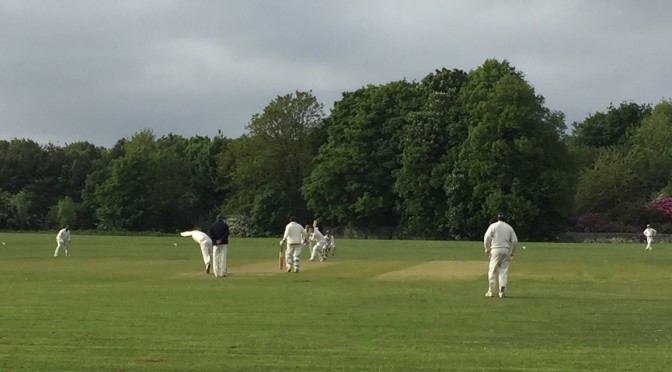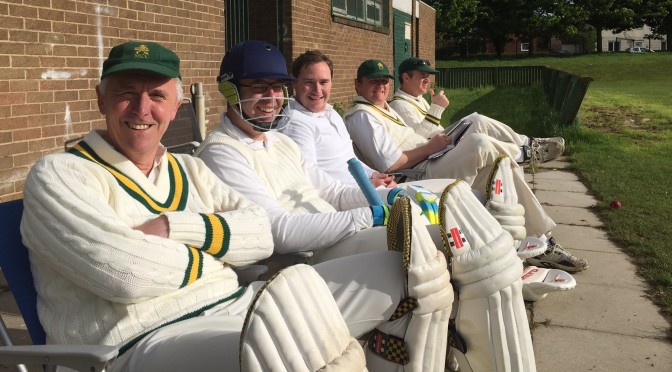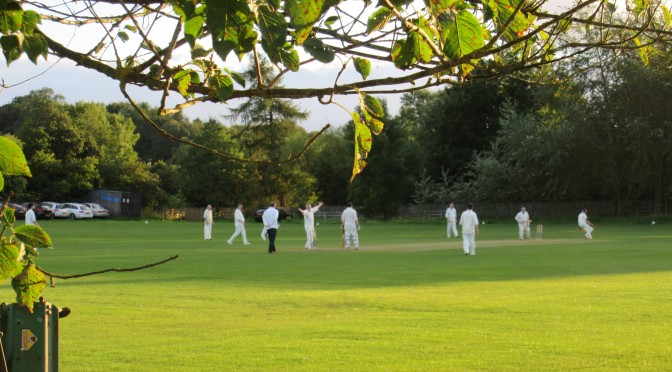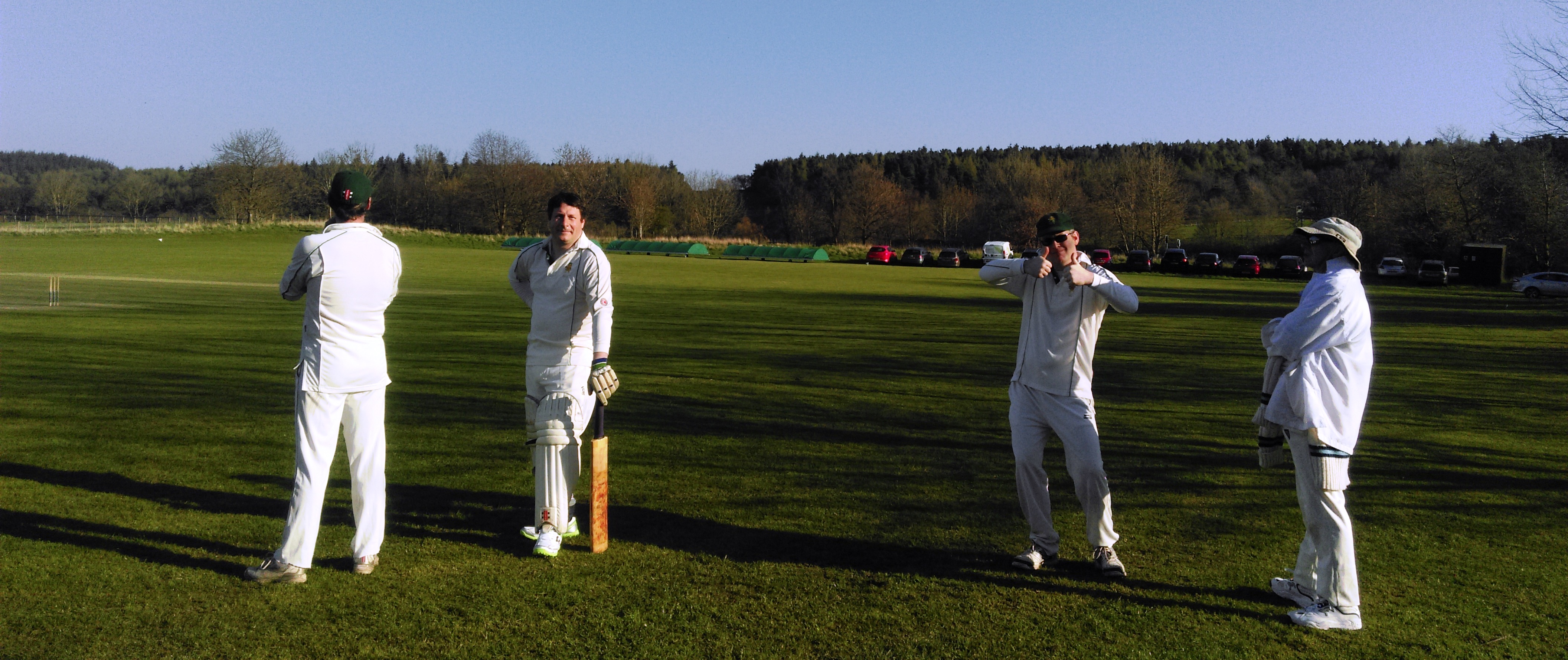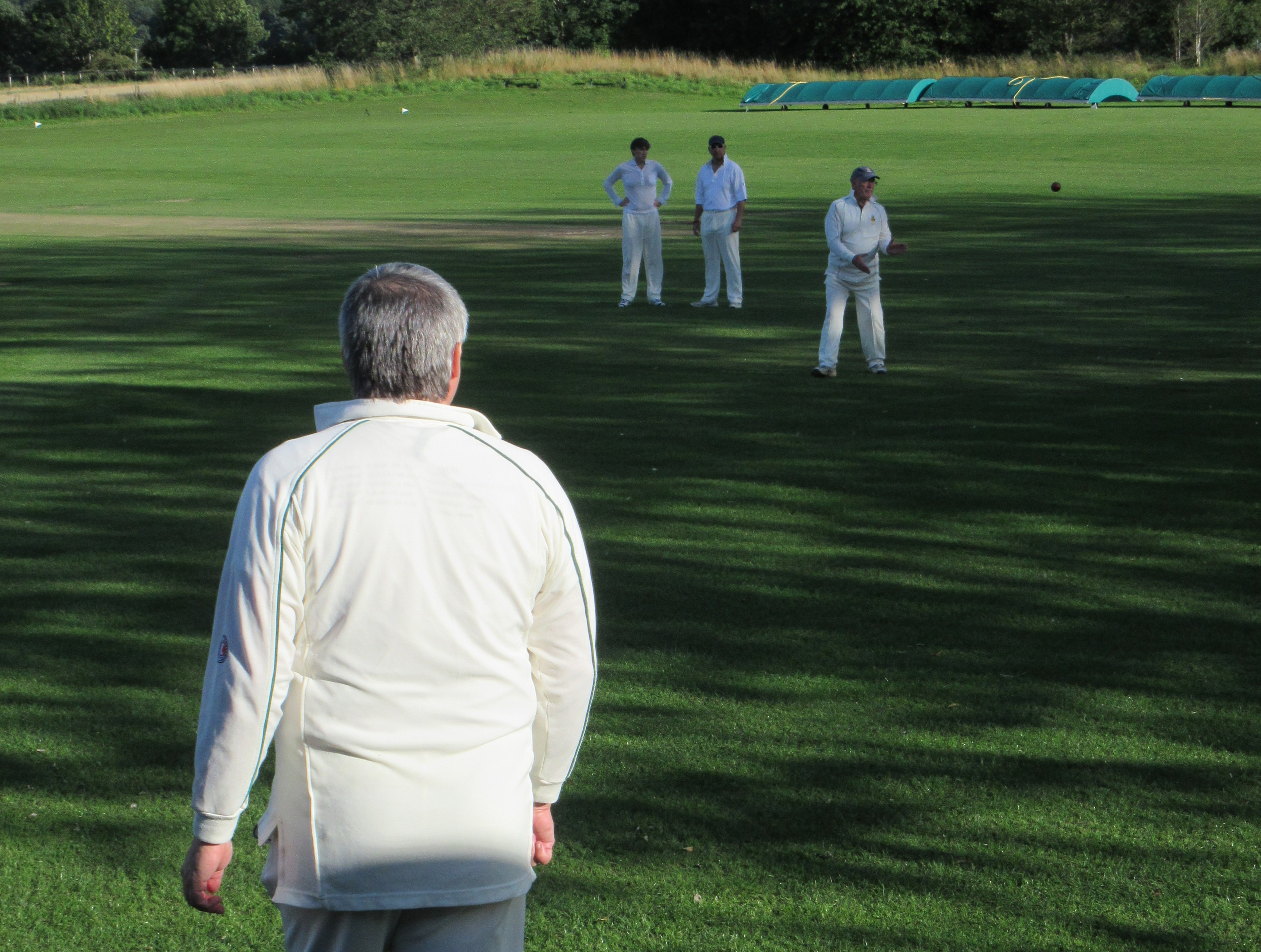A time there was… when all went well.”
Yes the unmistakable waft of nostalgia is in the air. I cannot thank our dear friends from Excelsior Batters enough for making this possible. Their recording of the events that occurred on the evening of Monday the 17th Octember 2006 may make for an incomplete record of historical events. They left behind mere fragments of a moment in time like the graffiti of Pompeii. You know the kind of thing, “Septimus est a vengrandis Dick”, and so on. Except in this case the Mallards were Coxless and it showed.
Nostalgia plays tricks with the mind; it blots out the bad and leaves a residue of warm, glowing memories; everyone was nice in the good old days, it only rained a night – just enough to refresh the lawns; the snowdrifts were a hundred feet high in November and you could keep your backdoor open without being a euphemism.
And so it was for Excelsior Batters: nothing but happy memories, generously provided by their great friends, Mallards CC. As nostalgia befits, the weather was warm and mellow; a veritable Val Doonican of an evening.
The Mallards openers strode out to bat first in the hope that the pitch had dried up since the previous encounter. The outfield was soft as was apparent every time a ball was thrown in the air and allowed to drop. It would stick to the spot without the hint of a bounce; never mind the pitch looked drier.
Glenwright opened the bowling to Steve Kent. His length was awkward – remember this is nostalgia so there are no euphemisms here. The pitch still proved slow but at least the ball managed to rise wearily off the surface. It was too slow for Steve who couldn’t time anything. So we started with a maiden. The second over saw Steve and Alan scratch away for another four runs and just a single in the third over before Steve found his range in the fourth striking two fours with Alan sweetly timing a late cut for another boundary
Dion changed his bowlers after a couple of overs at each end and this turned out to be a very smart move. Sure the bowlers looked clueless, like they’d never bowled in their lives with neither following through with their arm action after releasing the ball. Any hope that the ball would lift off the comatose surface after pitching was lost. From this point it was like a re-enactment of Trevor Chappell’s underarm ball to New Zealand: ball after ball. Steve was the first to perish to an LBW appeal when trapped on the back foot. In truth, it looked to be going down leg but the umpire’s decision finger was decibel powered: any Excelsior appeal rising above one decibel was out: the poor umpire, a crudely constructed machine, was powerless to resist his finger rising – again this is not a euphemism.
Twenty one for one soon became twenty three for two in the sixth over as Alan was run out when the Mallards combative captain called for a single to Dion. Perhaps if Alan had not hesitated at first thinking, “what the…” he might have had a chance but it wasn’t to be.
The introduction of Jobling into the attack brought more pain and frustration to the Mallards. The automated umpire at his end found it physically impossible to spread his arms out to make a signal as the ball often strayed far down the leg side. Those sat in the pavilion had no trouble coming up with signals of their own – not ones to be found in the MCC rules of cricket.
With the combination of unplayable wide balls and daisy cutters, Stig still managed to make one of the most valiant and some might say elegant of attempts to take the fight to the bowling; with a Goweresque lunge he failed to make contact with the ball but became fully connected with the ground following the most graceful of descents.
Then a miracle: news travels fast in this highly connected time where even God has a twitter account. Before close of play officials in the Vatican had already proclaimed the leg stump at the road end to be a Grade 3 holy relic. As Stig went for another ambitious run the throw hit the stump but failed to dislodge the superglued bail: Since time began had there ever been such a wonder. This was surely a sign from God himself that Stig was going to carry his bat, encased in a holy trance, destined to smite even the most unplayable ball or, to put it another way, be caught off Jobling for two: So a holy relic only and not a grade one shrine.
Thirty Five for Three and then Thirty Five for Four as Craig fell to the auto LBW mechanism at the field end. The score was dribbling along at only four an over, helped mainly by the few wides that were being signalled.
Trevor and Gareth came together – again that’s not a euphemism – to steady a fairly static ship. It wasn’t due to a lack of effort; the Trevor Chappell daisy cutters and the unsignalled wides – made progress almost impossible. For the record there were a few that I could have signalled and after one Trevor duly spooned a catch then thanked me. I contemplated his thanks for a moment then realised that there was a hint of bitter sarcasm in his tone. I vow not to sleep until I next get the opportunity to wrongly give Trevor “not out” to a clean bowled appeal. Sorry. In fairness, news of another miracle didn’t reach the Vatican when the bowler failed to appeal for LBW for a ball that would have clipped leg stump – hey but I wouldn’t have given it anyway.
Trevor departed with the score on fifty three and was almost immediately followed by Gareth, bowled taking a swipe at yet another Trevor Chappell delivery. Fourteen overs had passed. The scoring rate failed to improve and wickets continued to fall with only Rob managing to dig out a hard earned twelve not out and the bowlers contributing a few more wides. We’d crawled to seventy nine for nine in our twenty overs. Wides had top scored but special mention should go to Steve, Trevor and Rob for their brave attempts to squeeze some runs from this most lifeless of pitches.
Then it was Excelsior Batters turn to suffer this deadening surface. The trouble was the pitch that had previously been wallowing in a never ending weltschmerz suddenly began to behave like a Spring Rabbit when proper bowlers got to work on it.
If the recounting of events appears quite detailed for such fragmentary historical records it’s because the Mallards were keeping the score. It is quite understandable that a group of teachers, faced with a morale sapping Kafkaesque bureaucracy that required labyrinthine record keeping, would decide to take the evening off from their day job.
For the second inning, one of the Excelsior Batters changed the wiring of their Umpirebot to stop any reaction to raised decibels. It was time to crack on.
With Tony and Tom getting bounce and movement off the pitch it could surely be only a matter of time before the supposedly inexperienced Batters would succumb, not knowing one end of the bat from the other. Sure enough the opener Sh.. er.. Sche.. er God knows which, was bowled by Tony. He was soon followed by Birrell (possibly, who cares?) brilliantly caught by Dave McGuinness. In the meantime the other opener, Sh.. er.. Sche.. er God knows which, helped himself to that rarest of commodities, a couple of boundaries including a cleanly struck six.
Vulnerable as the Batters looked they were well up with the scoring rate with only two wickets down. Then joy of joys, the dangerous looking , Sh.. er.. Sche.. er God knows which, took the fight to Tom, pulling him to midwicket where Trevor with soft er.…hands took another fine catch. Now the Batters had been reduced to er… God knows what for three in the fourth over.
The fourth batsman – beware of players not wearing proper cricket tops – whose name I can’t read in the book and the more experienced Wilson began to turn the game the Batters way. Oh hang on have I got the two batsmen’s names right? I think maybe Wilson was the one wearing the grey top. I’m starting to sound like an old codger rambling on about the war… ah nostalgia…that Hitler was a jolly a nice young man.
Anyway the pair of them kept the scoreboard more than ticking along, well ahead of the rate required. The best efforts of Tom, Tony, Steve and Dave yielded nothing. We were going to have to bowl them out. Wilson, or was it the other one, retired on twenty five but we couldn’t wait for them all to retire.
It was left to Leon, way too late, to beat the defences of Wilson, or was it the other one and then have Flynn caught by Tom with the score on er.. in the er… sixteen the over I think. Dave then bowled Bodley, who had come in and struck a fine boundary.
It was a great fight back that continued in the eighteenth over when Leon bowled Jobling with the scores level. Then another miracle, one which the Vatican have become very excited about; the Umpirebot over road its settings and signalled wide (for the second time in an over) to close the game. Pope Francis has since declared the Umpirebot a grade One Holy Shrine to be worshipped by Catholics around the world, who would make their sacred task to make a pilgrimage to the place of its employment and hope their cars don’t get nicked or their tyres let down.
For the record, without the interventions of the Umpirebot, Leon’s figures would have been three for three off three overs.
All in all for the Batters truly a time there was when all went well.
That’s grand but what about us poor suffering Mallards? After such a demoralising defeat it fell to the team captain to raise team spirits for the next tussle with those jolly decent chaps once of Kings School but now too old to be called boys but not too old to be called other names.
That was a tough gig for Stig. He, like many of us had been rocked by the many tragic events that have unfolded in 2016 in the world of the arts and entertainment; the deaths of Bowie, Prince, Paul Daniels, Pierre Boulez and, most tragic of all, the continued survival of Bruce Forsyth and the BBC recommissioning another series of “Call the Midwife”.
One of those late departing left a final gift to the stricken Stig. When Pierre Boulez died the nightclubs of France all fell silent – around half past two in the afternoon. The diehard modernist left behind his final work, a children’s opera called “Goldilocks et les trois ours et that.” Stig had the joy of seeing his son perform in this new work which, despite its title made few compromises to its audience. This proved a visionary move because none of the proud parents had to worry whether their darling offspring were hitting the right notes or not.
Even so it was all too much for the Mallards Warrior King. Still reeling from the new “Call the Midwife” series he tried to rally his troops with his war cry, a speech reminiscent of Olivier’s in Henry V at the Battle of Agincourt:
“Sorry lads, I don’t know what’s up with me. I’ve not been feeling myself today.” Again we didn’t have euphemisms in the good old days
And with that his loyal troops left the ground roaring “let’s get em!”
By that I mean the beers in at the Duke of Wellington.
p.s. For the record: a closer examination of the scorebook reveals that the Mallards actually won by two falls and a submission in the third round. Now that’s my kind of nostalgia!


